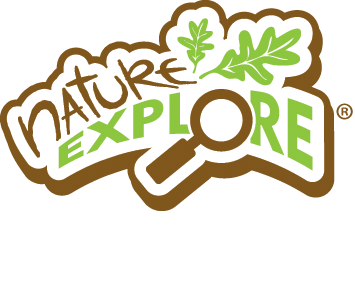The Story of the Sand Pile (1886)
By Dexter Lane, Nature Explore Consultant
 Dimensions Educational Research Foundation continuously yields valuable information about the powerful benefits outdoor play holds for children. Its research unambiguously demonstrates that young children develop academic and social skills during self-motivated free play; learning that happens spontaneously outdoors. Dimensions Foundation is at the forefront of researching and articulating these benefits. G. Stanley Hall (1844-1924), a pioneer of academic psychology in the US, would have been delighted by Dimensions’ work. Just look how his observations of children playing in sand mirror finding still true to this day.
Dimensions Educational Research Foundation continuously yields valuable information about the powerful benefits outdoor play holds for children. Its research unambiguously demonstrates that young children develop academic and social skills during self-motivated free play; learning that happens spontaneously outdoors. Dimensions Foundation is at the forefront of researching and articulating these benefits. G. Stanley Hall (1844-1924), a pioneer of academic psychology in the US, would have been delighted by Dimensions’ work. Just look how his observations of children playing in sand mirror finding still true to this day.
In 1886, the humble sandbox was introduced to Boston neighborhoods, as a means of giving city children safe places to play. Called “sand gardens,” these play-spaces became the inspiration for our country’s earliest playgrounds.
In 1888, a professional couple from Cambridge, Mass., dumped a large pile of sand in the back yard of their nearby summer home. Their sons, three and five, together with friends, then embarked on a journey of outdoor learning that sustained them for years.
Fortunately for us, G. Stanley Hall was a friend of the family. Deeply impressed by the story of the children’s activities and the quality of their learning, Hall wrote The Story of a Sand-Pile. He describes how, over many years, the children develop an entire society in their back yard. With their friends, they learn concrete skills such as woodworking and modeling. They learn about farm animals and their care, about business and commerce. They learn about forming an equitable social structure, with town governance and laws. Most importantly, they learn about themselves and each other.
Their backyard community became a powerful presence in the boys’ lives. “Most of the playtime of nearly every day of the boys most interested, for several summers, has been devoted to its diversified direct and indirect interests.” Creating a town and its society in what had started as a sand pile was the children’s idea. “The parents wisely refrained from suggestions, and left the hands and fancy of the boys to educate each other under the tuition of the mysterious play-instinct.” And because the children took ownership over their learning, they showed care and respect for the space. “It seems remarkable that during all the years of its existence no boy has been mean enough to injure or plunder it at night, or angry enough to demolish anything of importance.”
In Hall’s day, outdoor play was probably the norm in suburban and rural areas. What about this specific group of children and their play would captivate one of the great academic minds of the time?
Hall clearly believed—as we do today— that the children, through the development of their play-town, had been engaging in mature problem-solving, learning to observe closely, and developing self-control: and doing, all in a spirit of fun and adventure. He notes that, “On the whole, the “sand-pile” has, in the opinion of the parents, been of about as much yearly educational value to the boys as the eight months of school.” Hall agrees.
The Story of a Sand-Pile concludes with an astonishing observation. After seeing the intensity of the children’s commitment to their outdoor play, and the high skill-levels they’ve developed across many academic and social domains, Hall finds that this experience couldn’t have happened indoors. He observed the children’s self-motivated explorations organically probing into many interconnected subject areas. He reasons that this learning is deeper than learning that happens when skills are broken down into disconnected subjects in school.
At Dimensions Foundation, we would say that children’s’ experiences in our carefully designed Nature Explore Outdoor Classrooms extends and deepens learning that happens indoors. Because outdoor learning takes place in an environment of self-initiated explorations of natural materials, to the children, it’s simply “play.” The powerful learning dynamics that intrigued G. Stanley Hall can be seen daily in any Certified Nature Explore Outdoor Classroom.
We believe that G. Stanley Hall would have been very pleased by your efforts to connect children with nature. Onward to the past!
Discover for yourself the Nature Explore program’s vast collection of Outdoor Classroom Natural Products online by area of interest or request a free Resource Guide to learn more.

